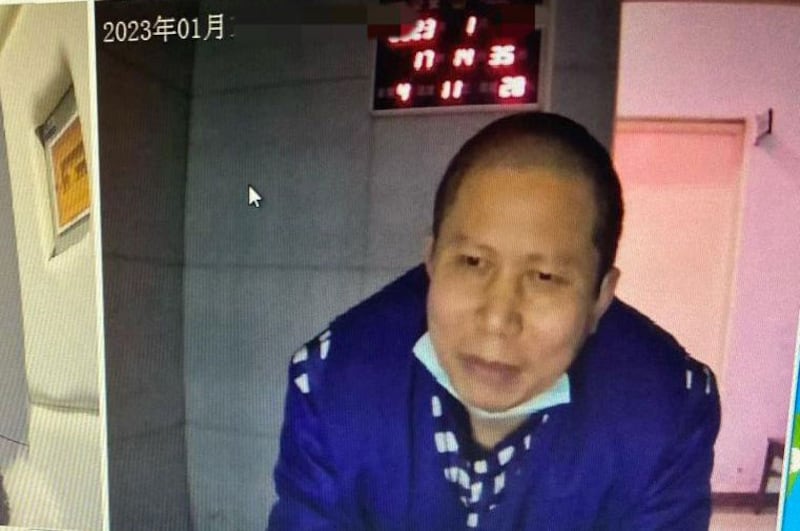Democracy activists in the United States have begun fasting in relays in protest at the treatment of jailed Chinese dissident Xu Zhiyong, who is on hunger strike in China’s Lunan Prison.
Organized by the U.S. branch of the banned China Democracy Party, the protest began on Oct. 23, and will run until mid-November, with two people fasting for 24 hours at any given time, in solidarity with Xu’s protest over his treatment in prison.
Exiled rights lawyer Chen Chuangchuang, who kicked off the protest on Oct. 23, said dozens of people have signed up to take part so far.
“Initially we thought we would have one person fasting per day, but soon we had more than a dozen people, so I suggested making it two people per day, so it didn’t drag on indefinitely,” Chen told RFA Mandarin in a recent interview.
Xu began a hunger strike on Oct. 4 in protest at his treatment in prison, where he is currently serving a 14-year jail term for “subversion of state power,” sparking concerns for his health.
He had earlier complained via his lawyer that he is being held separately from other inmates alongside three cell-mates who are charged with monitoring him around the clock.
Chen said he was moved to take part because Xu had previously said that political prisoners shouldn’t refuse food, due to the risks to their health.
“He knew this very well, but he still chose to do it, which shows that the authorities' persecution of Dr. Xu had reached an intolerable level,” Chen said. “We condemn the Chinese Communist Party for depriving Xu of his rights in prison, and call on Dr. Xu to start eating again as soon as he feels able to do so.”
Xu, who was nominated for a Nobel Peace Prize in February, is no longer referred to by name, but instead by a code name, 003. He has also been deprived of phone calls and reading and writing materials, and his family say they’ve never received any of the letters he writes to them.
His trial alongside rights lawyer Ding Jiaxi was widely criticized by rights activists as resulting from a trumped-up charge. Activists and rights lawyers say Xu has never advocated violence, and has paid a very heavy price for advocating for his personal ideals.
U.S.-based democracy activist Guo Bin, who fasted on Oct. 25, said he took part because of what Xu stands for.
“He spoke out for the poor and the disadvantaged,” Guo said, citing Xu’s comments on the beating to death of college graduate Sun Zhigang in the early 2000s. “He spoke out for the little people, and promoted the reform of the political system and its laws.”

“I felt I had to support him, because he is a great man.”
He said the day-long fast included water.
“I got a little hungry around 4 or 5 in the afternoon, but forgot about that when I got busy,” Guo said. “I drank some water and felt fine in the evening.”
China Democracy Party member Zheng Min, who also fasted on Oct. 25,said she took part after seeing a report about Xu’s hunger strike on X, formerly Twitter.
“I read on Twitter that Dr. Xu had been on hunger strike for 20 days,” Zheng said. “I was very worried about his health.”
“I wanted to join in to support him and protest his torture at the hands of the Chinese Communist Party,” she said.
Geng Guanjun, the Los Angeles regional director of the China Democratic Party National Committee, who fasted on Oct. 24, said that everyone who took part would jot down their thoughts and feelings during their fast day.
“I got very hungry around noon, but felt better in the evening,” Geng said. “These physiological feelings helped me to understand what Xu Zhiyong would feel like after more than 20 days of hunger strike.”
Zheng wrote in a social media post: “I don’t know whether this will help him regain his freedom, but I firmly believe that it is the right thing to do.”
The Chinese Human Rights Lawyers Group called on the Chinese authorities to end the unfair treatment meted out to Xu in prison.
“We call upon the authorities at Lunan Prison to ... respect Dr. Xu’s most basic rights, especially the right to read freely and to communicate [with loved ones],” the group said in a statement published Oct. 25.
Translated by Luisetta Mudie.
